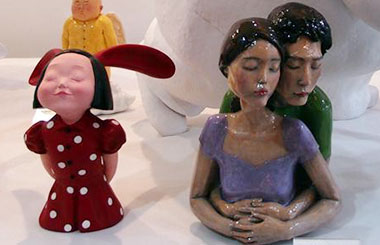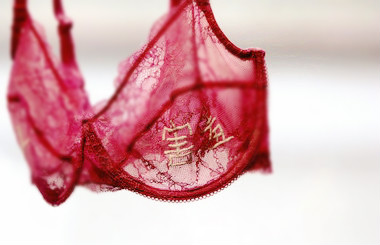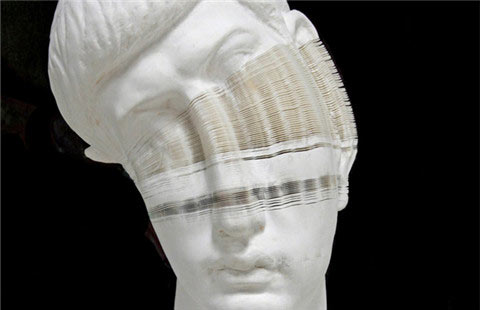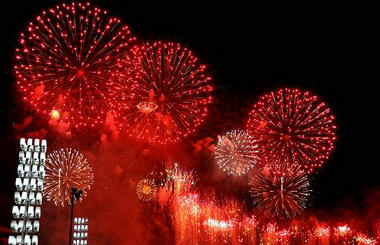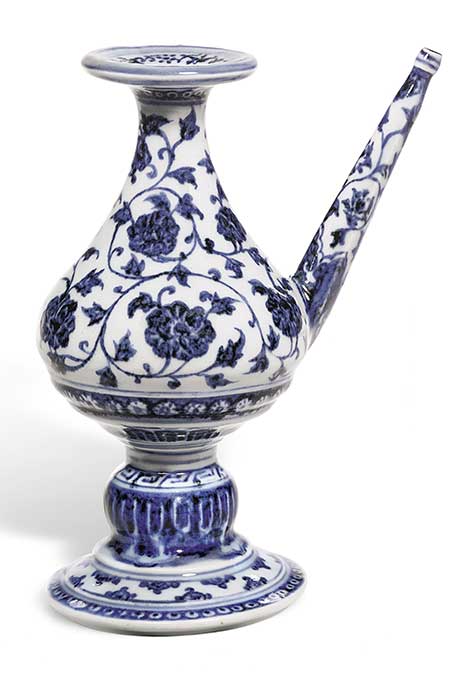 |
|
Three blue-and-white porcelains of Ming Dynasty in Pilkington's collection will be auctioned.
|
A blue-and-white "holy water" vessel, which was used at Buddhism worship ceremonies in the court of Emperor Yongle, is very similar to an example housed at the Palace Museum in Beijing.
Another Yongle-period moon-shaped flask incorporates classical Chinese decoration elements, such as lotus and waves, and symbolic Islamic motifs, which is also reflective of the booming trade between China and the Islamic world at the time.
The sale will mainly target Chinese mainland collectors who are acquiring Chinese cultural heritage pieces that had been transported abroad and who have recently rediscovered the values of Ming porcelain.
Qing porcelain, especially pieces of the Kangxi, Yongzheng and Qianlong periods, flooded the market for several years before 2015. The prices shot up because of competitive bidding among deep-pocket buyers.
The situation changed after the market slumped last year. Beijing-based Art Market Monitor of Artron says in a report of the second half of 2015 that while the craze for Qing wares cooled as they are too pricey, buyers instead eyed Ming objects which have come out to the market in collections, including many objects from important private holdings.
The reports notes that new collectors have acquired more scholarly knowledge of Ming art. Their aesthetic passion for Ming objects, such as blue-and-white porcelains of the Yongle and the Xuande periods, doucai ceramics of the Chenghua period and Ming-style furniture, is growing.

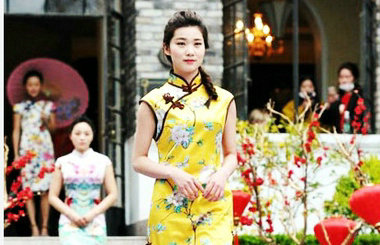

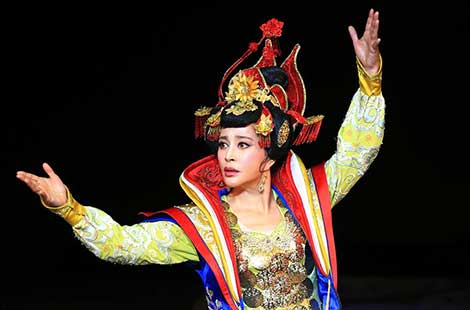
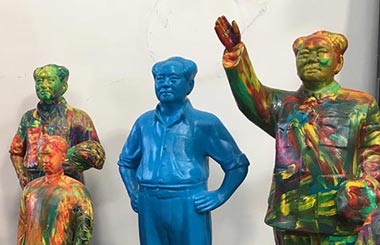
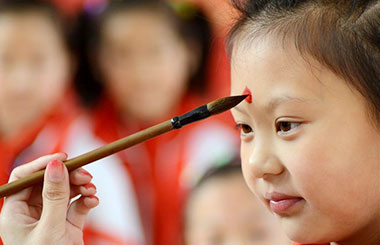
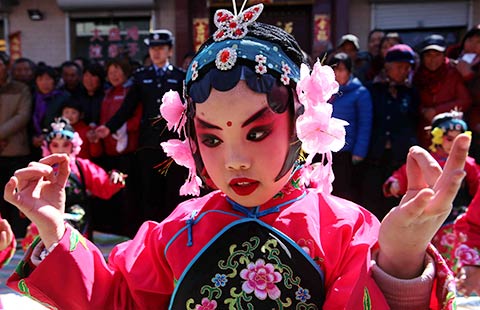





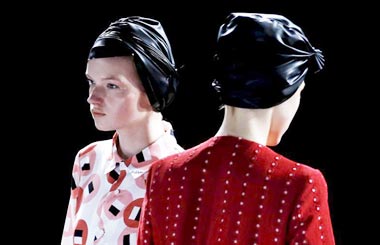


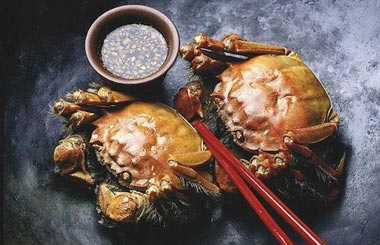
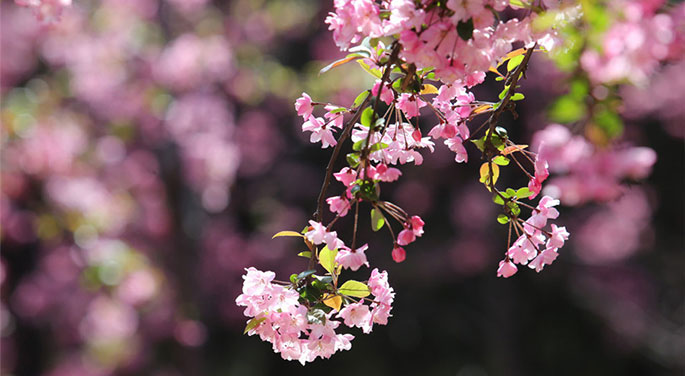

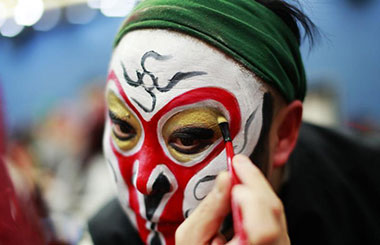




 Raymond Zhou:
Raymond Zhou: Pauline D Loh:
Pauline D Loh: Hot Pot
Hot Pot Eco China
Eco China China Dream
China Dream China Face
China Face


